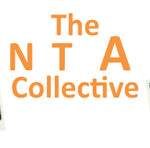The #SAchat conversation from yesterday was on credentials in Student Affairs. It was sparked, in part, by an initiative by ACPA to create a Student Affairs Credential Program.
Within the first couple of questions it was clear that the relationships between credentials, competencies, qualifications, achievements, experiences, and degrees were confusing.
Q1: How are we defining credentials? The evidence of my skills they required was a Bachelor's degree, Master's degree preferred. #sachat
— Dr. Lisa Endersby (she/her) (@lmendersby) January 19, 2012
In the crowd, fortunately, was Gavin Henning, who’s a member of the ACPA Credential Implementation Team. Here’s his attempt at explaining the relationship:
Got it? Goo…no me neither. I suspect ACPA will spend some time next on stepping back to have clear, understandable definitions of each term. Putting the actual meaning of each word aside for a moment and thinking about the goal of ACPA’s credential program…
“[To] demonstrate they have the skills and knowledge required to perform their responsibilities […] by providing an opportunity for a professional’s skill and knowledge to be validated and to bolster our value of continuous professional development.”
And I appreciate their “why” behind the program…
“We value the myriad ways individuals can enter our international profession. This diversity of experience adds a richness of professional practice that contributes to the field and enhances our students’ time at our institutions.”
It’s true, the diversity of roads into Student Affairs are almost as long as the number of different roles a university will clump under Student Affairs. I’ve had great conversations with career SA folk who were student leaders, then undergrads, then grad assistants, and now working on their Phds. I’ve also met people who were asked to move from managing the game room to heading Student Activities, “because no one else wanted to.” I wish I could say that it was consistent that the “career SAers” always had better programs than the “stumblers,” but that hasn’t been my case. Though it tends to be that way. In a blog post from yesterday on the same topic, Amma Marfo nicely said…
“You can be competent without credentials, and unfortunately incompetent with them.”
In a way, I’m a “career SAer” but without the credentials, if credentials are defined as…
I spent 25 hours a day on campus as a student leader and for the past seven years I’ve worked with over 250 SA departments to help create, increase, and measure student engagement through Student Affairs. I’ve read every book, research paper, blog post, and motivational quote that is probably given during a graduate program. I’ve attended countless conferences, ed sessions, tweetups, and boring lectures on Student Affairs. But when it comes to something I can hang on my wall…nope, got nothing for you.
So am I hirable in Student Affairs based on our current system? What is more important, a test that results in a paper to say I’m competent, or the results of the work I’ve done over the past 11 years and am doing right now? I get the desire to systemize through credentials once you realize the number of applicants that need to be screened, interviewed, and hired every year. But is there a better way? A sort of “Klout” like member-to-member system that awards you “credentials” not because you stop what you are doing to take a test, but rather awards you, in the moment, from your peers, while you are doing the work and showing the results. In Quora, I score points from peers based on the value I bring to the table, regardless of who I am, where I come from, or what my credentials are. What if we started hiring, and promoting, based on “engagement points” verses “credential points?”
But back to me for a moment :-). I love the marco work I get to do now, but I miss watching the students grow over the year. I’d love to someday work at one school and be there, day-to-day, with the students. Much like an adjunct professor, but I worry that creating more credentials (as defined above) that I need to have to even be considered will push people like me out because I’m not going to stop “doing” to prove I can “do.”
Q2. I think about a credential as a validation of skills, knowledge, and maybe experience depending on the type of credential. #sachat
— Gavin Henning (@gavinhenning) January 19, 2012
Q3. I am thinking of a competency as the basis of a credential program. #sachat
— Gavin Henning (@gavinhenning) January 19, 2012
Q3. Credential is based on common set of competencies in which we must acquire through various means. #sachat
— Gavin Henning (@gavinhenning) January 19, 2012
Q3. The credential would be based on competence in a defined set of skills and knowledge. #sachat
— Gavin Henning (@gavinhenning) January 19, 2012



